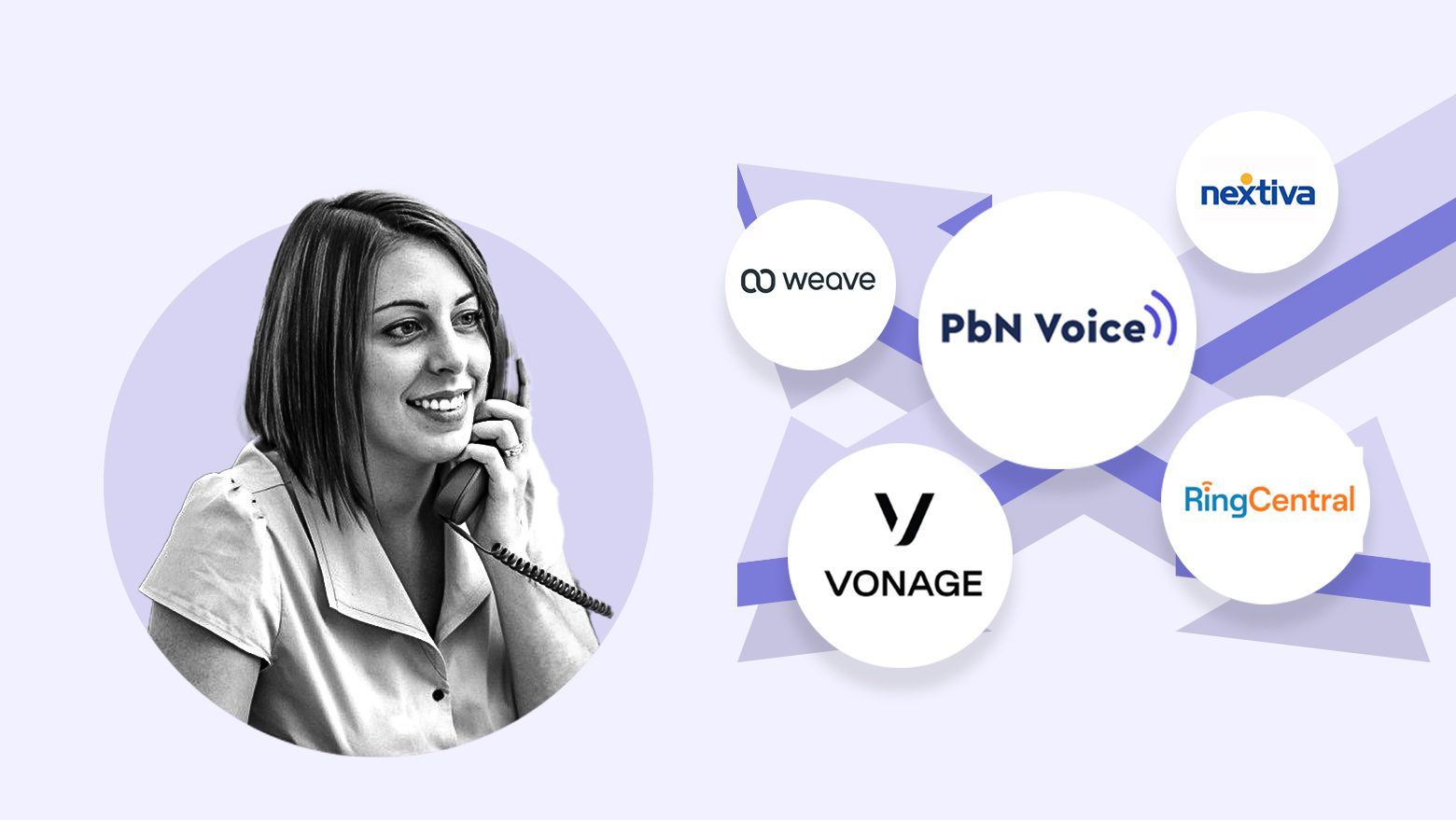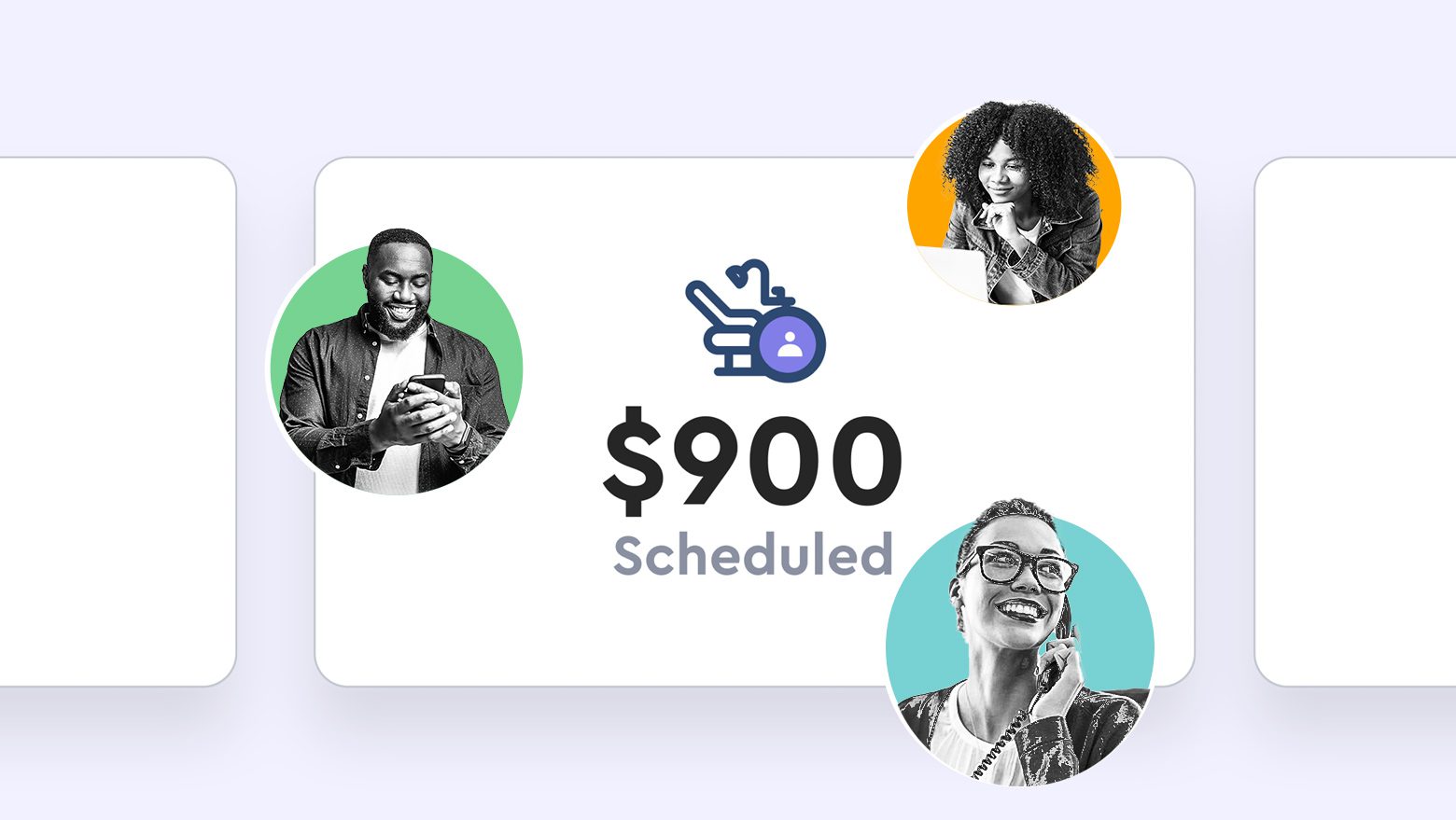Comparing VoIP Phone Options for Dental Offices

When selecting a VoIP system for a dental office, the decision goes beyond just finding a tool for making and receiving calls. It’s about choosing a comprehensive communication solution that enhances patient experience, streamlines office operations, and supports the growth of the practice. Below, we explore the leading VoIP systems tailored for dental offices, highlighting why PbN Voice stands out as the superior choice.
Comparison of Leading VoIP Systems for Dental Offices
1. RingCentral
Pros:
- Integration and Features: RingCentral integrates with over 300 applications, including Salesforce, Microsoft Teams, and Google Workspace, making it ideal for practices that need robust CRM and productivity tools.
- Reliability: Offers 99.999% uptime, ensuring communication lines remain open, which is crucial for dental offices.
- User-Friendly Interface: Easy to use with most features configurable via a mobile app, beneficial for busy offices.
Cons:
- Cost: Higher price point, which might be prohibitive for smaller practices.
- Overwhelming Features: The extensive feature set may be too complex for smaller teams that don’t need all functionalities.
2. Nextiva
Pros:
- Flexibility: Allows mixing and matching of plans, ideal for diverse communication needs.
- User Experience: Known for being user-friendly with a drag-and-drop interface.
- Reliability and HIPAA Compliance: Offers 99.999% uptime and focuses on HIPAA compliance, making it a strong candidate for healthcare providers.
Cons:
- Price Transparency: Often requires a minimum number of user accounts, which might not suit smaller practices.
- Complexity in Larger Setups: Setting up for multi-location practices can be complex and might require additional support.
3. 8×8
Pros:
- Affordable Entry-Level Plans: Offers feature-rich entry-level plans, including global calling and video conferencing.
- Scalability: Easily add new lines, phone numbers, and users as your practice grows.
- Integrations: Works well with various CRMs and business applications, streamlining patient communication.
Cons:
- Customer Support: Some users report less responsive customer support.
- Customization Limitations: Fewer customization options compared to competitors like RingCentral.
4. Weave
Pros:
- Specialized for Dental and Medical Practices: Offers features like appointment reminders, two-way texting, and patient review management.
- Patient Engagement: Enhances patient communication through integration with practice management software.
- Ease of Use: Intuitive and easy to set up, ideal for practices without dedicated IT staff.
Cons:
- Feature Set: Lacks some advanced call management and analytics features found in more general-purpose systems.
- Scalability: Best suited for small to mid-sized practices, may not scale well for larger operations.
5. Vonage
Pros:
- Comprehensive Features: Includes SMS, video conferencing, and call routing, making it versatile for smaller practices.
- Ease of Use: Known for being straightforward and easy to set up.
- Affordability: Cost-effective solution, especially for practices transitioning from traditional phone systems.
Cons:
- Limited Advanced Features: May not offer the same level of advanced call management, reporting, and integration as competitors.
- Support and Reliability: Reports of customer support issues and occasional service outages.
PbN Voice: The Superior Choice for Dental Practices
In the competitive healthcare market, PbN Voice goes beyond being just a phone service. It’s a comprehensive communication solution designed to meet the specific needs of dental and medical practices. Here’s why PbN Voice stands out:
1. PMS Integration
Advantage: PbN Voice integrates seamlessly with Practice Management Software (PMS), giving receptionists instant access to patient information.
Importance: In a busy dental office, the ability to quickly access patient records during calls is critical for providing personalized and efficient service. For example, when a patient calls to discuss an upcoming procedure, the receptionist can immediately view the patient’s file, providing detailed and relevant information. This fosters trust and satisfaction, making the patient feel valued from the first point of contact.
2. Unified Communication Channel
Advantage: PbN Voice uses the same phone number for both automated SMS communications and voice calls.
Importance: Consistency in communication builds trust with patients. When patients receive appointment reminders and follow-up messages from a number they recognize, they are more likely to engage. This reduces confusion and ensures that patients keep their appointments, which is essential for maintaining an efficient schedule.
3. Detailed Call Analytics
Advantage: PbN Voice offers in-depth call analytics, providing insights into missed calls and potential lost patients.
Importance: Understanding call patterns and where potential patients might be lost is crucial for optimizing operations. For example, if analytics reveal a high number of missed calls during peak hours, the practice can adjust staffing or use automated responses to ensure no potential patient is lost. This data-driven approach leads to higher patient acquisition and improved service delivery.
4. Integration with Patient Engagement Software
Advantage: PbN Voice is fully integrated with patient engagement software, enabling seamless communication and follow-up.
Importance: Effective patient engagement is vital for long-term relationships. For instance, after a dental procedure, automated follow-up messages can check on the patient’s recovery, improving patient outcomes and satisfaction. This coordinated communication ensures that patients feel cared for, enhancing their overall experience.
5. Remote Work Capabilities
Advantage: PbN Voice allows remote employees to handle follow-up communications from anywhere in the world.
Importance: The flexibility to have remote staff manage communications is increasingly important, especially in today’s environment. For example, an administrative assistant can handle appointment scheduling and confirmations from home, ensuring the office remains responsive even when staff is not physically present.
6. Automated Patient Conversion
Advantage: PbN Voice automatically converts missed calls into new patient appointments by sending SMS invitations to book online.
Importance: Missed calls often lead to missed opportunities. PbN Voice ensures that no potential patient is lost by sending an SMS to book an appointment, even if the call was missed. This feature maximizes conversion rates and supports practice growth.
7. Enhanced Caller Experience
Advantage: With PMS integration, PbN Voice enables receptionists to greet patients by name and handle calls based on detailed information.
Importance: First impressions are critical, and how a call is handled sets the tone for the entire patient experience. By providing a personalized greeting and referencing relevant patient information, PbN Voice enhances the caller experience, increasing patient loyalty and encouraging referrals.
Conclusion
PbN Voice is more than just a VoIP system; it’s a comprehensive communication solution tailored specifically for dental and medical practices. By integrating deeply with PMS and patient engagement software, offering advanced analytics, and supporting automated patient conversion, PbN Voice enhances every aspect of patient communication. This leads to improved operational efficiency, higher patient satisfaction, and ultimately, significant growth in patient acquisition and retention.
For dental practices seeking to stay competitive and deliver exceptional patient care, PbN Voice is the clear choice. For more information, visit their official site.





